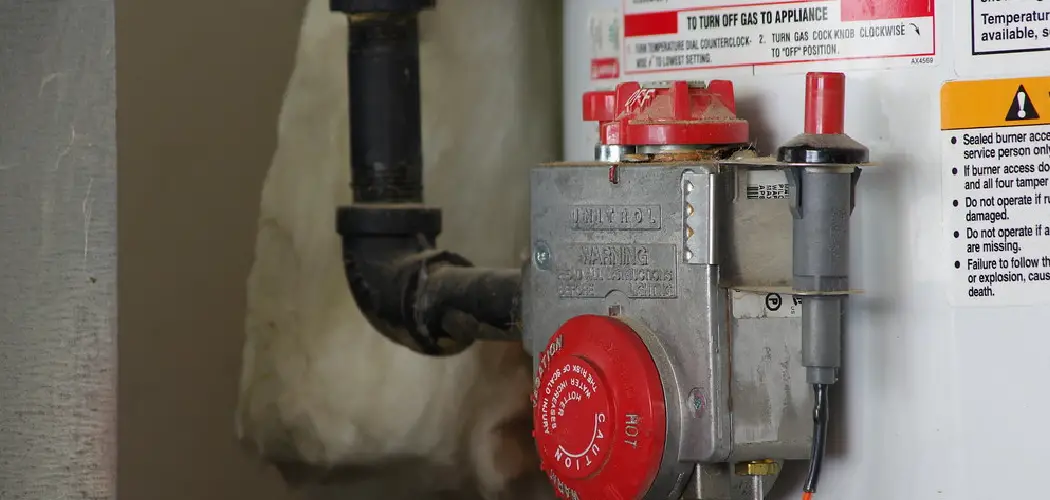When a hot water tank starts to leak, it can cause significant damage and inconvenience. Not only does it waste energy and increase your utility bills, but it can also lead to water damage in your home. It’s important to fix a hot water tank leak as soon as possible to avoid these problems. In this guide on how to fix a hot water tank leak, we’ll walk you through the steps to identify and repair the leak yourself.
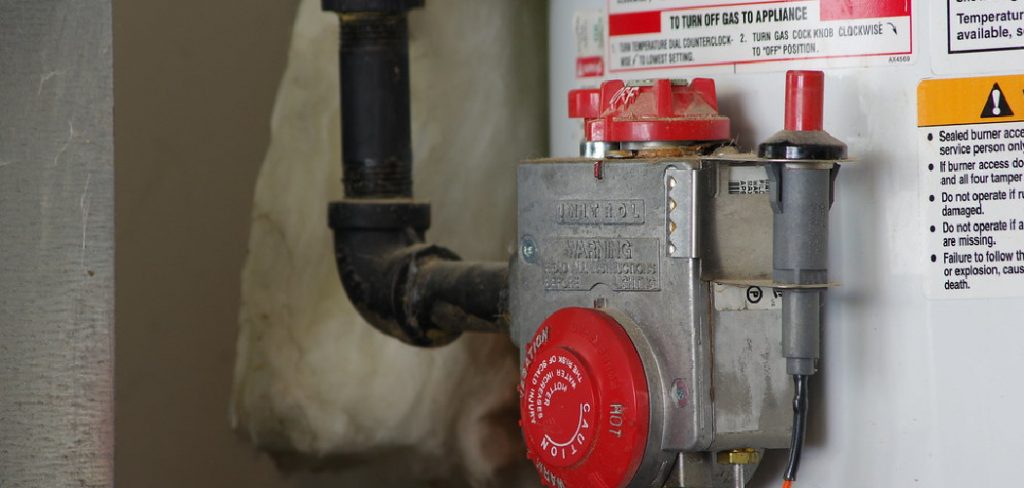
Necessary Items
To fix a hot water tank leak, you will need the following items:
- A replacement valve or gasket
- Pipe sealant
- Adjustable wrench
- Screwdriver
- Garden hose (if your tank has a drain valve)
8 Signs of a Hot Water Tank Leak
There are several signs that indicate your hot water tank might have a leak. These include:
1. Water Pooling Around the Base of the Tank
If you notice water pooling around the base of your hot water tank, this is a clear indication of a leak. The source of the leak could be from either the top or bottom of the tank. And if the leak is coming from the bottom, it could be a sign of serious damage.
2. Dampness or Discoloration on Walls Near the Tank
Leaks can also cause dampness or discoloration on the walls near your hot water tank. This could indicate that water is seeping through cracks and damaging your home’s structure. But before jumping to conclusions, make sure to check if the source of the dampness is actually the tank and not something else.
3. Strange Noises Coming from the Tank
If you hear gurgling or dripping noises coming from your hot water tank, it could be a sign of a leak. These sounds can come from air bubbles escaping through holes or cracks in the tank. If you notice these noises, make sure to inspect your tank for leaks immediately.
4. Fluctuating Water Temperature
A leak in your hot water tank can also cause fluctuations in water temperature. This happens because the leak allows cold water to mix with the heated water in the tank, resulting in inconsistent temperatures when using hot water.
5. Visible Rust or Corrosion on the Tank
Rust or corrosion is a clear sign of damage to your hot water tank. If you notice any rust or corrosion, it’s important to fix the leak as soon as possible to prevent further damage and potential failure of the tank.
6. Increase in Utility Bills
A sudden increase in your utility bills could be an indication of a hot water tank leak. If your hot water tank is constantly leaking, it will use more energy and cause a spike in your utility bills. So, if you notice a significant increase in your bills, make sure to check your hot water tank for leaks.
7. Water Pressure Issues
Leaks can also cause issues with water pressure in your home. If the leak is significant, it could affect the overall water pressure and flow throughout your house. So, if you suddenly experience low water pressure, it’s important to inspect your hot water tank for leaks.
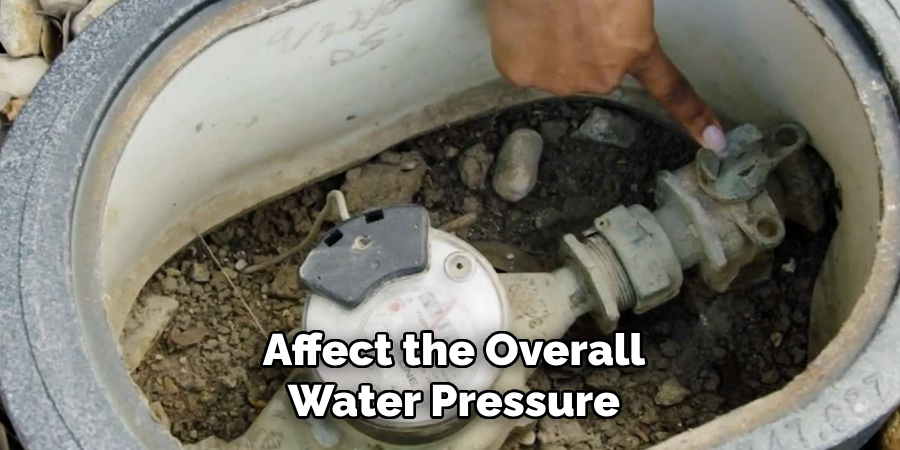
8. Age of the Hot Water Tank
Lastly, the age of your hot water tank can also be a factor in potential leaks. As tanks get older, they become more prone to rust and corrosion, which can lead to leaks. If your tank is over ten years old, it’s important to regularly check for any signs of damage or leaks.
Fixing a hot water tank leak is essential to avoid potential damage and inconvenience. By knowing the signs of a leak and having the necessary items ready, you can quickly fix any issues that arise with your hot water tank. Remember, early detection and prompt action are key in preventing further damage and ensuring the longevity of your hot water tank.
12 Steps on How to Fix a Hot Water Tank Leak
Step 1: Turn off the Water Supply
Before attempting to fix the leak, turn off the water supply to your hot water tank. This will prevent any more water from leaking out and causing further damage. If your tank has a drain valve, connect a hose to it and direct the water outside.
Step 2: Drain the Tank
Once the water supply is turned off, drain all the remaining water from the tank using either the drain valve or a pump. This will allow you to access and inspect the damaged area more easily. So make sure to drain the tank completely.
Step 3: Inspect the Tank
Thoroughly inspect your hot water tank for any visible damage, rust, or corrosion. This will help you determine the source and extent of the leak. as well as the necessary repairs.
Step 4: Tighten or Replace the Valve
If the leak is coming from a valve, use an adjustable wrench to tighten it. If tightening doesn’t work, you may need to replace the valve entirely. Make sure to turn off the water supply before attempting this step.
Step 5: Apply Pipe Sealant
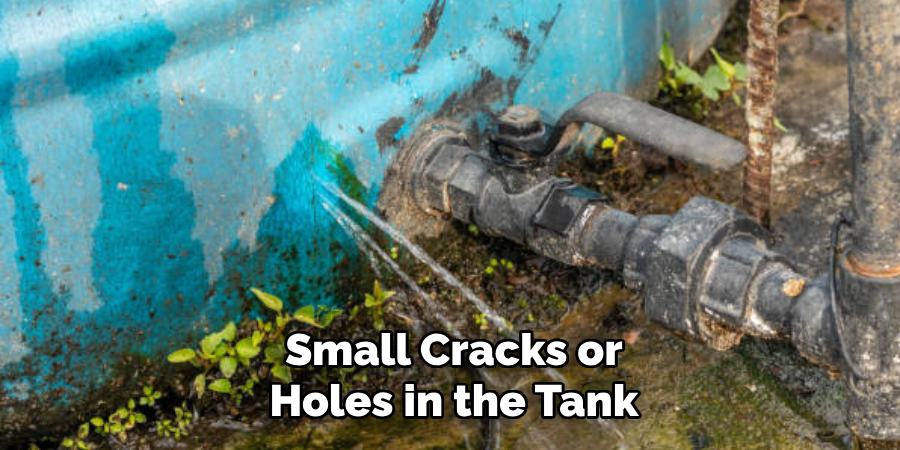
If there are any small cracks or holes in the tank, you can use pipe sealant to fix them. Simply apply the sealant using a brush or your fingers and let it dry completely before moving on to the next step. But keep in mind that this is only a temporary solution, and you may need to replace the tank in the future.
Step 6: Replace Gaskets
If the leak is coming from a gasket, make sure to replace it with a new one. First, remove the old gasket using a screwdriver and then install the new one according to manufacturer instructions. Make sure to tighten any screws or bolts securely.
Step 7: Clean the Area
Before reassembling everything, make sure to clean the area where the repairs were made. This will prevent any debris or remaining sealant from causing future leaks. While cleaning, also make sure to check for any other potential leaks or damage.
Step 8: Reassemble the Tank
Once everything is cleaned and the repairs are complete, reassemble the hot water tank. Make sure to follow manufacturer instructions and tighten all screws and bolts securely. Then, turn the water supply back on and allow the tank to fill up.
Step 9: Check for Leaks
After the tank is filled with water, check for any leaks. If you notice any new leaks, repeat the previous steps until all leaks are fixed. While checking, also make sure that the water pressure and temperature are functioning properly.
Step 10: Insulate the Tank
To prevent future leaks, consider insulating your hot water tank. This will not only help with energy efficiency but also protect the tank from rust and corrosion. You can use a pre-cut insulation blanket or foam pipe wrap for this step.
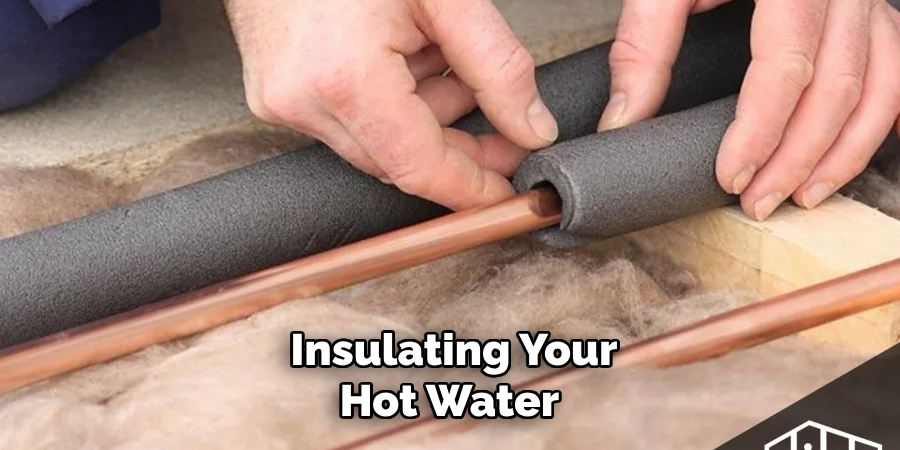
Step 11: Regular Maintenance
To prolong the lifespan of your hot water tank and prevent leaks, it’s important to perform regular maintenance. This includes checking for any signs of damage or leaks, flushing the tank annually, and replacing sacrificial anode rods every five years.
Step 12: Upgrade if Necessary
If your hot water tank is old and constantly experiencing leaks, it may be time for an upgrade. Consider investing in a new tank that is more efficient and has a longer lifespan. By upgrading, you can save money in the long run and avoid frequent repairs.
Fixing a hot water tank leak may seem like a daunting task, but by following these simple steps on how to fix a hot water tank leak, you can quickly address any issues and prevent further damage. Remember to always turn off the water supply before attempting any repairs and regularly inspect your tank for signs of leaks or damage.
By taking proactive measures, you can ensure the longevity of your hot water tank and avoid inconvenient and costly leaks in the future. So, if you notice any of the signs mentioned above, make sure to take immediate action to fix the leak and keep your hot water running smoothly.
8 Things to Avoid to Prevent Hot Water Tank Leaks
1. High Water Pressure
High water pressure can put excessive strain on your hot water tank and lead to leaks. Make sure to check the water pressure in your home and install a pressure regulator if necessary. If you notice a sudden increase in water pressure, it’s important to address the issue immediately.
2. Overheating the Tank
Setting your hot water tank temperature too high can cause excessive pressure and lead to leaks. Make sure to set the temperature at a safe level (typically 120 degrees Fahrenheit) and regularly check that it is functioning properly.
3. Ignoring Maintenance
Regular maintenance is key in preventing hot water tank leaks. Make sure to follow the manufacturer’s instructions and perform necessary maintenance tasks such as flushing the tank, replacing anode rods, and checking for leaks.
4. Using Harsh Chemicals
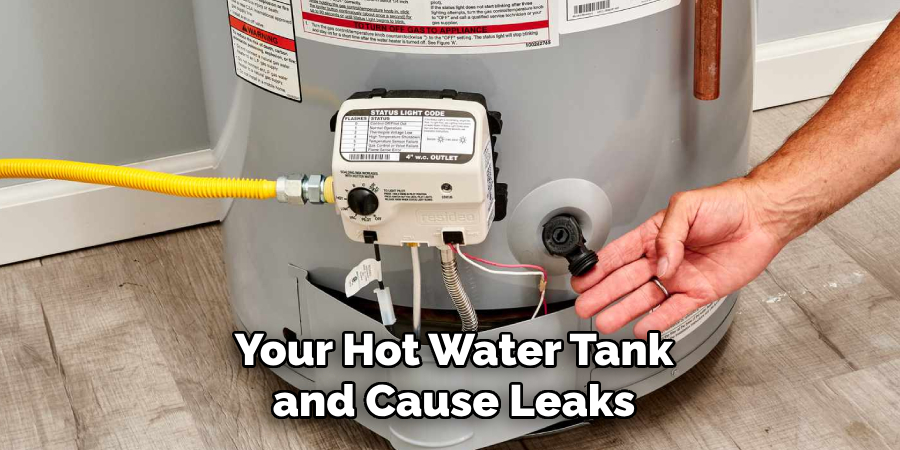
Using harsh chemicals or drain cleaners can corrode your hot water tank and cause leaks. Instead, opt for natural solutions or consult a professional for safe and effective cleaning methods. Even flushing your tank with vinegar can help prevent corrosion.
5. Neglecting Rust or Corrosion
Rust and corrosion can greatly weaken your hot water tank and eventually lead to leaks. Be sure to thoroughly inspect your tank for any signs of rust or corrosion and address the issue immediately before it becomes a bigger problem.
6. Overloading the Tank
Putting too much pressure or weight on your hot water tank can cause damage and lead to leaks. Make sure to avoid storing heavy items on top of the tank or overloading it with extra weight. As a precaution, consider installing a platform for your tank to distribute weight evenly.
7. Poor Installation
Improper installation of a hot water tank can cause leaks and other issues. Make sure to hire a professional or follow manufacturer instructions carefully when installing a new tank. This will ensure proper connections and prevent future problems.
8. Old Age
Unfortunately, like any appliance, hot water tanks have a limited lifespan. If your tank is over 10 years old and experiencing frequent leaks, it may be time for a replacement. Keep track of the age of your tank and consider upgrading to a newer and more efficient model when necessary.
By avoiding these common mistakes, you can prevent hot water tank leaks and prolong the lifespan of your appliance. Remember to always address any issues or potential problems immediately to avoid costly repairs and inconveniences.
Regular maintenance and proper usage can help keep your hot water tank running smoothly for years to come. So make sure to follow these tips and take good care of your hot water tank to avoid any unexpected leaks in the future.

8 Additional Tips for Proper Hot Water Tank Maintenance
1. Drain the Tank Annually
Flushing your hot water tank annually can help prevent sediment buildup and corrosion, which can lead to leaks. Make sure to follow manufacturer instructions and turn off the power and water supply before draining the tank.
2. Check Anode Rods
Anode rods are sacrificial rods that help prevent corrosion in your hot water tank. These rods should be regularly checked and replaced every 5 years to ensure maximum protection for your tank. Also, make sure to use high-quality anode rods for the best results.
3. Inspect Pipes and Connections
Regularly inspecting your hot water tank’s pipes and connections can help catch any potential leaks or issues early on. Check for any cracks, loose connections, or signs of corrosion and address them immediately.
4. Use a Water Softener
If your home has hard water, it can cause mineral buildup in your hot water tank and lead to leaks. Consider installing a water softener to prevent this issue and extend the lifespan of your tank. While it may require an initial investment, it can save you money in the long run.
5. Keep the Area Around the Tank Clear
Make sure to keep the area surrounding your hot water tank clear of clutter and debris. This will not only allow for easier access during maintenance and repairs but also prevent any potential damage to the tank or its connections.
6. Insulate Your Tank
Insulating your hot water tank can help improve its efficiency and prevent heat loss, which can put strain on the tank and lead to leaks. Make sure to use proper insulation materials and follow manufacturer instructions for best results.
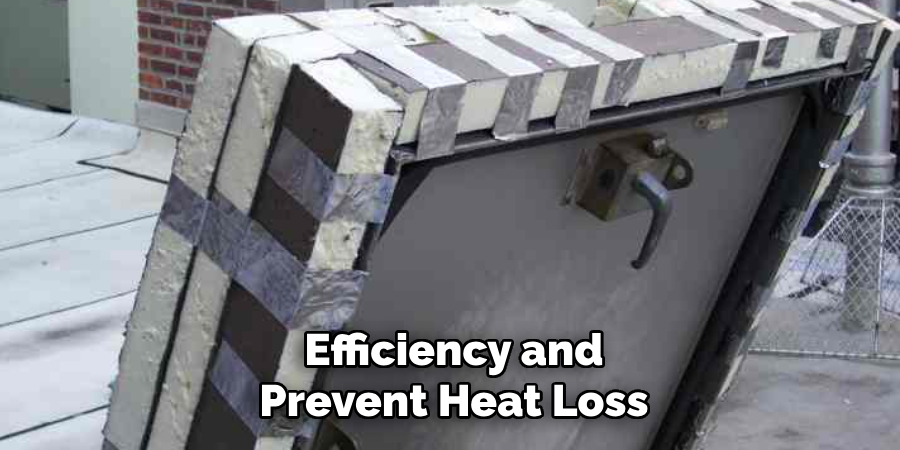
7. Address Any Issues Immediately
If you notice any unusual noises, leaks, or other issues with your hot water tank, address them immediately. Ignoring these problems can lead to bigger and more costly repairs in the future.
8. Consider a Tankless Water Heater
If you’re looking for a long-term solution to prevent hot water tank leaks, consider upgrading to a tankless water heater. These systems have a longer lifespan and do not require maintenance like traditional tanks. However, they come with a higher upfront cost. So, weigh your options and choose the best solution for your home and budget.
By following these additional tips on how to fix a hot water tank leak, you can ensure proper maintenance of your hot water tank and avoid any unexpected leaks or issues.
Keep in mind that regular attention and care can greatly extend the lifespan of your tank and save you money in the long run. Make sure to consult a professional for any major repairs or replacements, and always prioritize safety when handling hot water tank maintenance.
Frequently Asked Questions
How Often Should I Schedule Maintenance for My Hot Water Tank?
It is recommended that annual maintenance tasks such as flushing the tank and checking anode rods be performed. However, regularly inspecting your tank for any issues is also important. So, make sure to schedule maintenance at least once a year and address any problems immediately.
Can I Use Harsh Chemicals to Clean My Hot Water Tank?
No, harsh chemicals can corrode your hot water tank and cause leaks. Opt for natural cleaning methods or consult a professional for safe and effective solutions.
How Long Does a Hot Water Tank Typically Last?
The average lifespan of a hot water tank is 8-12 years, depending on usage and maintenance. Regular upkeep can help prolong its lifespan, but it’s important to keep track of the age of your tank and consider replacement when necessary.
Is It Safe to Drain My Hot Water Tank Myself?
Draining a hot water tank requires turning off the power and water supply, as well as using caution when handling hot water. It is recommended that a professional be hired for this task to ensure safety and proper maintenance. So, unless you have experience and knowledge in handling such tasks, it’s best to leave it to the experts.
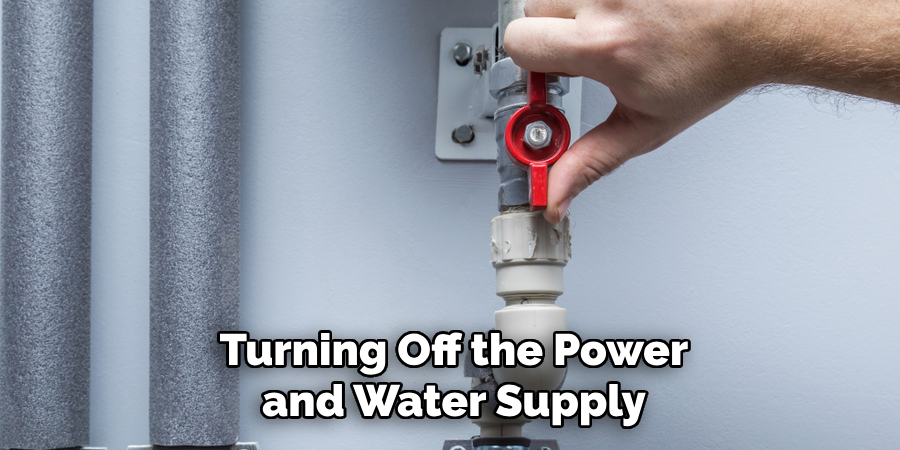
What Should I Do If I Notice Leaks from My Hot Water Tank?
If you notice leaks from your hot water tank, turn off the power and water supply immediately and consult a professional for repairs or replacement. Ignoring leaks can lead to bigger problems and safety hazards. So, it’s important to address them promptly and effectively.
Conclusion
Proper maintenance is crucial for preventing hot water tank leaks and prolonging its lifespan. By following these tips on how to fix a hot water tank leak and being diligent with upkeep, you can ensure a reliable and efficient hot water supply for your home.
Always prioritize safety and consult a professional for major repairs or replacements. With regular attention and care, your hot water tank can last for many years without any unexpected leaks or issues. So make sure to schedule annual maintenance, inspect regularly, and address problems immediately for the best results.

